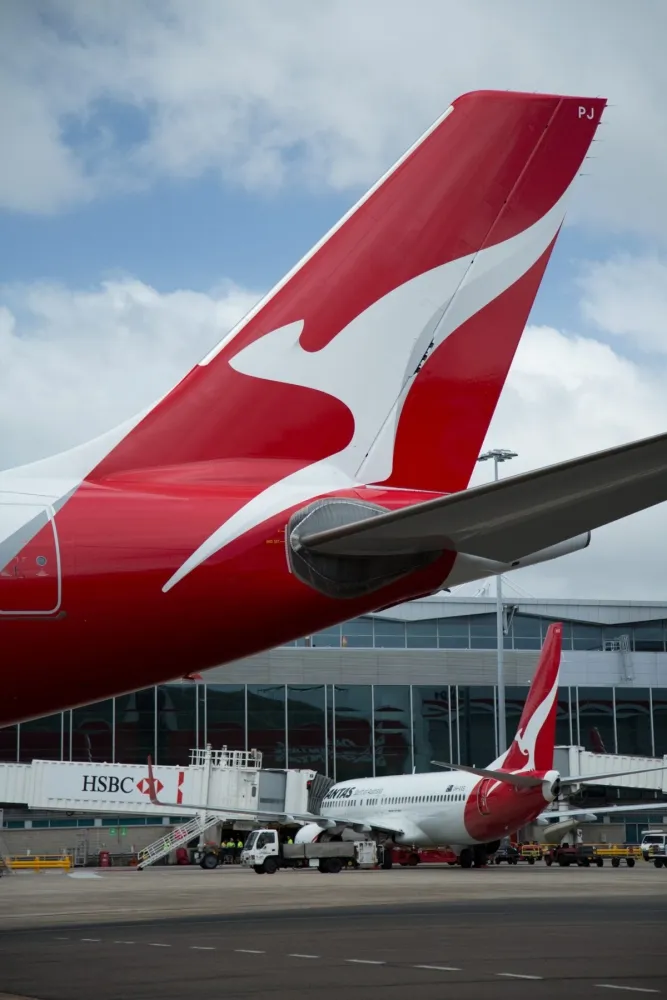
Qantas capitalises on surge in Japanese tourism
Jul 26, 2017

Qantas has strategically positioned itself to benefit from the recent surge in Japanese tourism, capitalizing on increased travel demand between Australia and Japan. The airline has expanded its flight offerings and enhanced its services to cater to the growing number of Japanese tourists visiting Australia. By strengthening partnerships with local tourism operators and focusing on marketing initiatives, Qantas aims to provide a seamless travel experience. This approach not only boosts the airline's revenue but also supports the broader tourism industry in Australia, fostering economic growth and cultural exchange between the two nations.
As the global travel industry rebounds, Qantas has strategically positioned itself to take advantage of the surging interest in Japanese tourism. The airline's commitment to expanding its services and enhancing its offerings aligns perfectly with the growing demand from Australian travelers eager to explore Japan’s rich culture, stunning landscapes, and vibrant cities. This article delves into how Qantas is capitalizing on this trend, highlighting key initiatives and strategies that are shaping its approach to the Japanese market.
Increased Flight Frequencies
To meet the rising demand for travel to Japan, Qantas has significantly increased its flight frequencies to major Japanese cities. This strategic move not only provides more options for travelers but also enhances connectivity, making it easier for Australians to visit Japan. The chart below illustrates the increase in flight frequencies over the past year:
| Route | Previous Weekly Flights | Current Weekly Flights |
|---|---|---|
| Sydney to Tokyo | 5 | 10 |
| Melbourne to Osaka | 3 | 6 |
| Brisbane to Tokyo | 4 | 8 |
This increase in flight options not only caters to leisure travelers but also business travelers looking to strengthen ties with Japanese companies. As a result, Qantas is poised to capture a significant share of the growing tourism market.
Enhanced In-Flight Experience
Understanding that travelers seek comfort and quality, Qantas has revamped its in-flight services specifically for routes to Japan. By introducing more Japanese cuisine options, travelers can enjoy authentic meals during their flights. Furthermore, the airline has improved its entertainment offerings, providing a selection of popular Japanese films and shows that resonate with passengers.
Qantas has also focused on staff training, ensuring that cabin crew members are well-versed in Japanese culture and etiquette. This attention to detail enhances the overall customer experience, making it more appealing for travelers to choose Qantas for their journey to Japan.
Partnerships with Japanese Tourism Entities
To further solidify its presence in the Japanese market, Qantas has established partnerships with key Japanese tourism entities. These collaborations enable the airline to offer exclusive packages that include not only flights but also accommodations, guided tours, and local experiences.
For instance, Qantas has teamed up with various Japanese hotels and tour operators to create attractive packages that appeal to different types of travelers, whether they are seeking adventure, relaxation, or cultural immersion. By providing these tailored experiences, Qantas aims to enhance its brand appeal and attract more customers.
Targeted Marketing Campaigns
To effectively reach potential travelers, Qantas has launched targeted marketing campaigns that highlight the unique aspects of traveling to Japan. Utilizing social media platforms, email marketing, and digital advertisements, these campaigns focus on the rich cultural experiences, culinary delights, and stunning scenery that Japan offers.
The campaigns also emphasize specific travel themes, such as cherry blossom season, winter sports, and traditional festivals, which resonate with potential travelers. By tapping into these interests, Qantas is able to create more personalized marketing messages that speak directly to the desires of its audience.
Focus on Sustainability
As travelers become increasingly conscious of their environmental impact, Qantas is committed to promoting sustainable travel options. The airline has invested in more fuel-efficient aircraft and implemented initiatives aimed at reducing carbon emissions.
In addition, Qantas has partnered with various environmental organizations in Japan to promote eco-friendly tourism practices. By highlighting these efforts, Qantas not only attracts environmentally conscious travelers but also enhances its reputation as a responsible airline.
Conclusion
As Japanese tourism continues to flourish, Qantas is well-positioned to capitalize on this opportunity through increased flight frequencies, enhanced in-flight experiences, strategic partnerships, targeted marketing campaigns, and a strong focus on sustainability. By aligning its offerings with the interests and needs of travelers, Qantas is set to become a leading choice for Australians looking to explore the beauty and culture of Japan. The airline's proactive approach not only benefits its bottom line but also contributes to the broader goal of fostering international tourism and cultural exchange.
Related Articles

Explore Thailand: The Best Islands to Visit for Paradise, Adventure, and Relaxation

The Ultimate Guide to the Best Islands in Thailand for Your Next Getaway

Do babies need passports? How to get a passport for a newborn

How to get a U.S. passport fast: here’s how to expedite the process

What is Mobile Passport Control: 5 reasons why you should use it

SENTRI vs. Global Entry: A detailed guide

Do you need a passport to go to the Bahamas? Let’s find out

Do you need a passport to go to Mexico? A detailed guide

Do you need a passport to go to Canada? We got the answer

Do You Need a Passport for a Cruise: An Essential Travel Guide

Booster Seat Requirements: All the Rules to Follow in Your Rental Car

What Are the World’s Most Powerful Passports, and How Does Yours Rank?

How to Take a Passport Photo at Home: A Helpful Guide

You've got to have heart! Southwest's new livery

Your opinion: Should water be free on low cost carriers?

Young women bolder than guys as solo travellers
